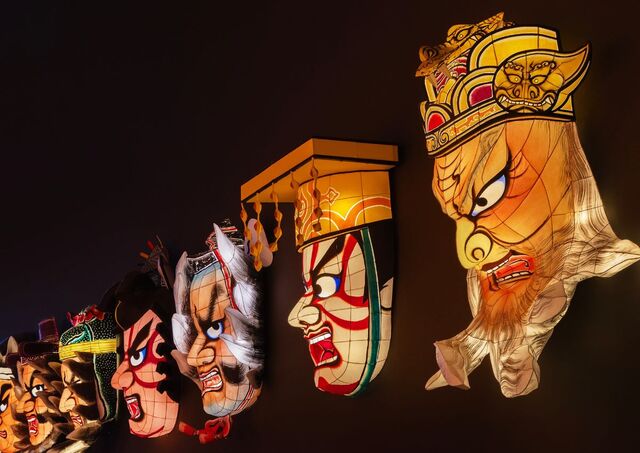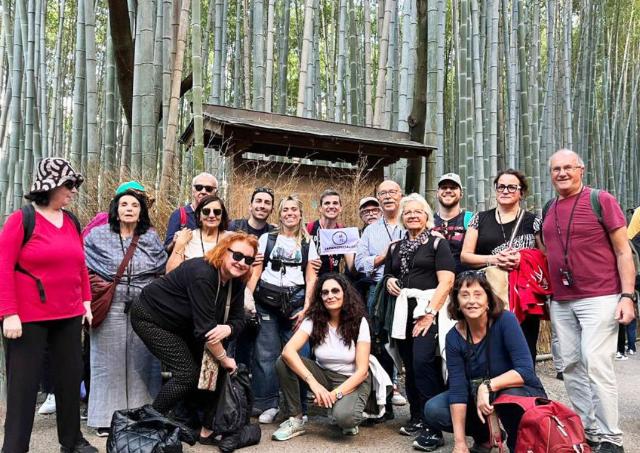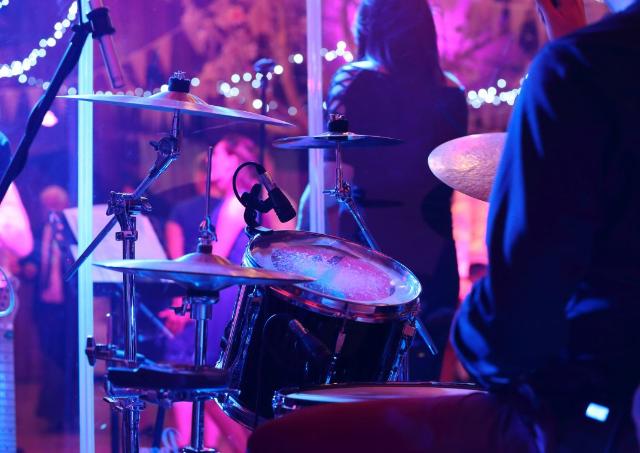Top 5 Day Trips from Tokyo
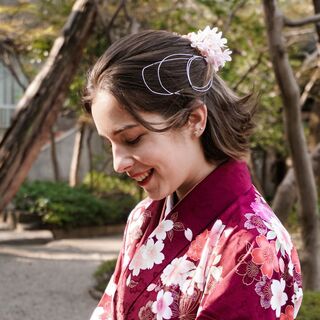
Japanspecialist
Budapest, Hungary
With so many things to do in Japan's capital city, Tokyo, it's no wonder why tourists choose to spend most of their time frolicking through the modern laser-lit streets and alleys of its major wards.
While that is definitely a good idea, Tokyo will always be a visitor's hub paradise. Every time you come to Japan, you'll more than likely land in the Tokyo metropolitan area. But sticking to the city limits is half the fun. Why not venture out on some day trips, and take in these once-in-a-lifetime opportunities while you can? With our Tokyo day trip selection, we recommend you explore Japan - not just Tokyo.
As such, we have compiled a list of our favourite tested and travelled day trips from Tokyo. All of these will get you out of Tokyo and into a mix of nature and history - exploring sites from eras long past with national treasures and world heritage sites galore, tasting some local specialty, and enjoying hot springs.
So, let's break down where you should go and why taking a day trip from Tokyo is such a must.
5. Kawagoe Day Trip from Tokyo: The Little Edo
Less than an hour by train from Shinjuku Station, Kawagoe lies on the bend of the Iruma River in Saitama prefecture. Famous for its old houses that line the blocks north of Kawagoe Station, particularly Kurazukuri Street, it's been labelled one of Japan's "Little Edo." It's also one of the closest preserved old towns to Tokyo, making it a popular day trip for tourists looking for a Kyoto vibe without having to travel to the other side of the country.
Formerly warehouses, the shops and restaurants that line the streets sell trinkets and local specialties typically themed around Kawagoe's famous sweet potatoes. Here, sweet potatoes flavour and accompany all kinds of meals from teishoku (set meals) to ice cream. They're also a common street food in the form of glazed skewers or long, fried potato chips.
Koedo-yaki hanpo, or filled pancakes, are some of the most popular snacks in the area. These pancakes are shaped to represent the most notable landmark of the area - the Toki no Kane, or bell tower that can be found in the town centre. Originally 400 years old, this bell tower still rings several times a day and fascinates tourists with its history and the opportunity to walk beneath it.
At 10 minutes walking distance from Toki no Kane lies Kawagoe Hikawa Shrine, where you will find the beloved fish fortunes of the city, and the chance to ride a boat on the Shingashi River. As such a simple, stress-free trip, it's impossible not to leave without a smile.
4. Kamakura Day Trip from Tokyo: The Great Buddha
Well before Edo was renamed to Tokyo, samurai armies became the samurai assassins we all know and love today. Even before that, however, Kamakura in west Kanagawa prefecture was a transformative player in the 12th century - moulding Japan into what it would become today. Kamakura is easily accessible in less than an hour from Shinjuku Station and Tokyo Station, making it a convenient day trip destination from central Tokyo.
While Kamakura is a city worth visiting for its popular beaches and seaside hangouts, it is most renowned for its temples of old. One of the most easily recognized sites in Kamakura is city's Daibutsu, or Great Buddha bronze statue. As a fixture of Kamakura for centuries, this massive statue has withstood the test of time having been created during Kamakura's peak.
The multi-teared Hase-dera Temple is also a gorgeous complex to visit with an enormous wooden carving of Kannon, the goddess of mercy, on display. Throughout the city, plenty of temples and gardens can be discovered on foot. Some of our favourites include: Meigetsu-in Temple with its hydrangeas, Hokoku-ji Temple with its bamboo grove, Zeniarai Benzaiten Shrine with its Mt. Fuji views, and the Daibutsu Hiking Trail which connects all temples in Kamakura. You can visit these spots on foot while never being too far from the relaxing seaside views offered from both the local train line and the coast itself.
It's no wonder Kamakura is such an ideal day spot that tourists know and love, in contrast to the busy streets of Tokyo.
3. Nikko Day Trip from Tokyo: Shrines and Tradition
World Heritage Nikko. Need we say more?
With well-timed round trip tickets to Nikko, you can explore this gem north to Tokyo in just a day. While Japan has no shortage of World Heritage sites, Nikko is certainly at the top of our list and UNESCO's of places to visit. Located about two hours from Tokyo Station, Nikko is the home of shrines blending with nature: the natural scenery alone is enough to inspire any visitor, but it's the sites of worship that call to the inner explorer in us all.
Nikko's Toshogu Shrine, easily reachable on foot or by bus from Nikko Station, sits atop a hill just beyond the famous Shinkyo Bridge, a charming red arch bridge, that sits so elegantly over the blue foaming Daiya River. Dedicated to Tokugawa Ieyasu, the famous unifier shogun, or military leader of the country, Toshogu Shrine's worshipped deity is also the loved leader making Toshogu Shrine a place to honour the man who shaped the nation.
The complex is immaculate. Much of the architecture is decorated in gold leaf including its intricately stunning gate, Yomeimon - a structure that could be awed over all day. Still, there are also many artworks to see in and on the structures themselves. The wooden carving of the Three Wise Monkeys, or the Honjido Hall's dragon painting are prime examples along with a neat architectural sound experiment visitors must experience.
Moreover, you can find hot springs along Nikko's river, Kinugawa, making it not just a one-day tip, but a perfect weekend (or overnight) destination as well. We couldn't recommend it enough.
2. Hakone Day Trip from Tokyo: Hot Springs and Nature
What better way to see Mt. Fuji than from the surrounding mountains themselves? It sure helps that these mountain peaks make up an ancient volcano of their own - ideal for nature explorers and hot spring lovers.
Hakone is a hot spring town and a special geological gem. Reachable at just under an hour and a half by Odakyu's Romancecar, an affordable limited express bullet train substitute, Hakone sits just southeast of Mount Fuji at the west end of Kanagawa prefecture. A volcano of many peaks, Hakone still bubbles and churns which makes it the prefecture's hottest spot for hot springs and its famous snack kuro tamago, or spring-boiled black eggs.
In Hakone, tourists rise and fall like mountains to enter and exit the caldera lake, Lake Ashi. A cable car takes riders up through the mountain forests to Gora, a restful small-town resort spot of parks and scenic views. Then, visitors are treated by soaring in a rope car over the trees and into Owakudani - a boiling cliff of sulphur steam where visitors can try the black eggs of fame - eaten familiarly like a boiled egg.
The cable car continues downhill with miraculous views of Mt. Fuji as visitors are then swept on to a pirate ship ferry that takes them across Lake Ashi to the resort and Hakone Shrine area. Well-known for its floating vermillion red torii gate, the main Hakone Shrine complex is surrounded by a forest and sits as a fine reward for making it all the way to the centre of Mt. Fuji's volcanic little neighbour. What a ride!
1. Mt. Fuji Day Trip from Tokyo: The Most Popular
Whether you're on it or around it, there's no mistaking the sheer magnificence of Mt. Fuji - Japan's natural icon and highest peak. For those with more time, Mount Fuji also makes for a great weekend trip.
While Fuji is breathtaking from any angle, one of the most popular places to view it is from Lake Kawaguchi in Yamanashi prefecture. An easy ride on the Fujikyuko Line train at the Kawaguchiko Station, Lake Kawaguchi is surrounded by a string of resorts and includes a hillside ropeway to see Mount Fuji from well above the trees. While Fuji is visible all year round, the mountain is notorious for being covered with clouds.
The colder, dryer months are better options for Fuji views, but it's always a good idea to check Mt. Fuji's weather forecast before visiting.
Likewise, Mt. Fuji is available for climbing in the warmer months between July and September. Contrary to popular belief, Mount Fuji is a mountain that can be scaled without climbing gear. Thus, the summit of Fuji can be reached without much more than good shoes, clothes, a few provisions, and a walking stick in anywhere between five to eight hours. As all people young and old climb Fuji annually, the mountain is not as difficult a trek as many have been led to believe.
Still, plans to stay overnight at the mountain's final station to catch a glimpse of the sunrise over the clouds from the top. Who wouldn't want to experience that, right?
Best Ways to Travel on Your Day Trips from Tokyo
As safely assumed, Japan has you covered with its punctual train system. Tokyo Station, Shinjuku Station and Ikebukuro Station serve as major hubs for many of these day trips, offering convenient access to various destinations. While some of these closer locations can be comfortably reached by local JR train, places like Nikko can be reached either by local JR line or shinkansen and Utsunomiya's local Nikko line. Buses are also recommended for getting to any of the harder-to-reach spots you may want to explore around these sites.
Conveniently, most of these places are covered by the JR Tokyo Wide Pass. Purchasing the pass will grant you unlimited access to any JR East train within its labelled zones for three days. Depending on how often you plan to use it, this could save you a fortune! If you would like to get your JR Tokyo Wide Pass, contact us at jrp@japanspecialist.com.
Booking Tours from Tokyo in Advance
Our Mt. Fuji and Hakone in a Day tour will help you check these off your list!
Popular day-trip destinations like Tokyo Disneyland often require pre-booking to ensure entry.
Let us guide you through Nikko and more on our Japan Heritage tour!
Plan your trip with us
Get in touch with one of our travel consultants, they are ready to help you create the trip you always dreamed of.
Online Consultation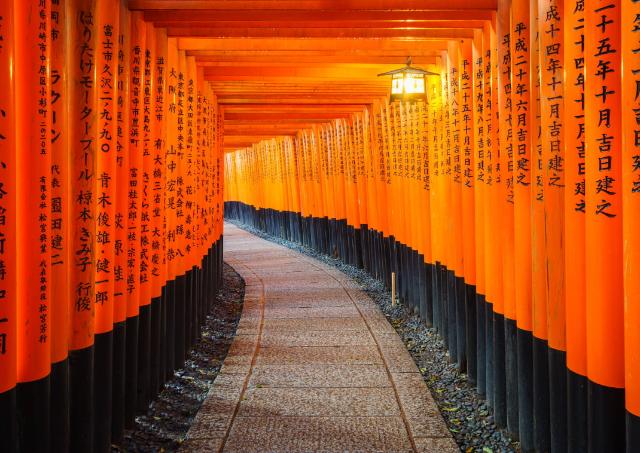
You may also be interested in these articles
All ready for the trip of a lifetime? That Japan trip itinerary can be exhilarating to review. Tokyo here, Kyoto there, Osaka at night; what a thrill to finally get […]
“There's something incredibly special about sharing the beauty and culture of Japan with others. For me, it's the chance to elevate the travel experience to a deeper, […]
It’s no secret that Tokyo is a party town. From the second the sun goes down, the lights go up, and the wet streets around stations become rainbows of reflected neon […]

